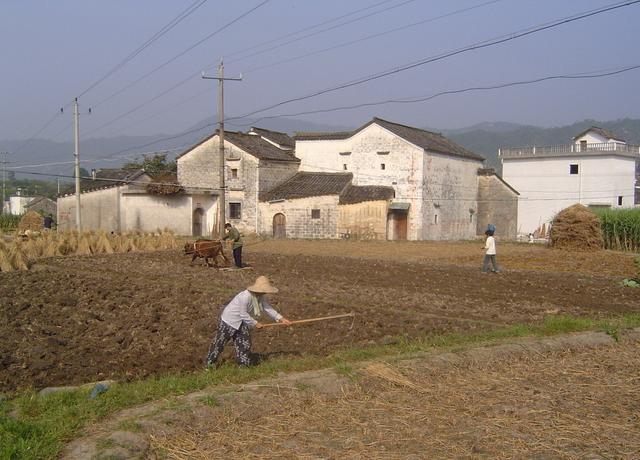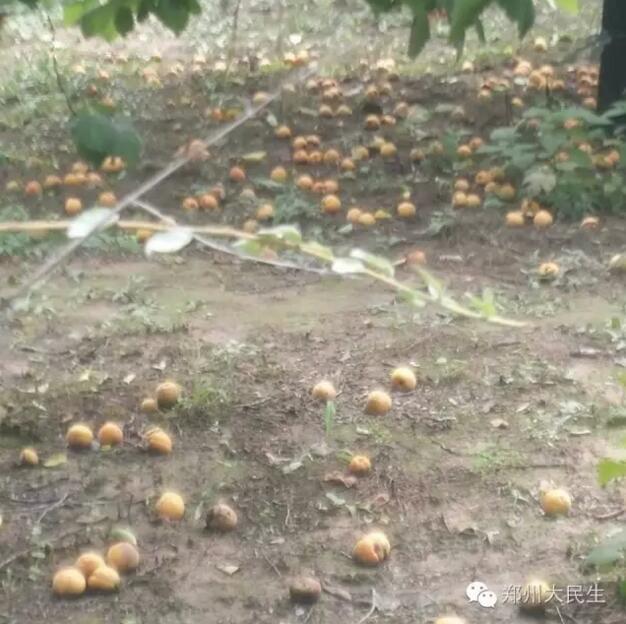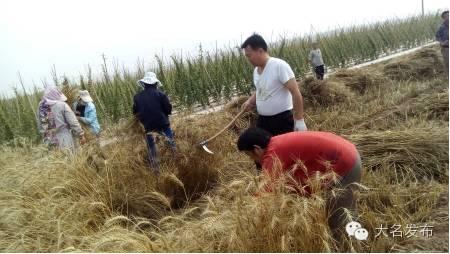Who will farm in the countryside in the future? China's Rural Situation
Now there is such a jingle in rural areas: "post-70s" do not want to farm land, "post-80s" do not know how to farm land, and "post-90s" do not mention farming. This is by no means a joke or joke, but a common problem in rural areas. most of the people who stay in the village to farm are the elderly and middle-aged women, while the children have gone to work in the city. Who will farm the land in the future? Where does the food for more than a billion Chinese come from?

Who will farm the land in the future?
According to a survey of two major agricultural counties in Henan and Shandong, rural people under the age of 55 basically do not farm, do not want to plant, and will not plant, according to the people's Daily online.
There are five members of Zhang Ming's family in Pingling Village, Sizhai Township, Henan Province. His son and daughter-in-law work away from home with a monthly income of more than 6000 yuan (RMB, the same below). His wife looks after his grandson, and 10 mu of land depends on Zhang Ming to take care of the land alone. "I don't expect to get rich by farming." just earn two jobs. "
Li Cheng, a 74-year-old villager, stopped going to the field after the operation the year before last. 12 mu of contracted land was handed over to his son Lee Boon Yang. He said: "it's not that my son wants to grow it, but he's not in good health. He can't go out to work and has no skills, so he can only farm at home."
Pingling Village, a total of 4900 mu of land, the village head admitted: "under 55 years old, can hardly be seen in the fields." The post-70s do not want to cultivate land, the post-80s do not know how to farm, and the post-90s do not mention farming. The land in the village is not transferred on a large scale, and most of them are grown at home by the elderly and women. "
Such a situation is still in the rural plains of northern Henan Province. If you go into the South Taihang Mountains and take a look at the terraces in Shanxi and other mountain areas, it will be another scene. Few people can be seen working in the terraced fields on the whole slope, and many of the land is abandoned.
According to the report, a few years ago, the policy encouraged large families to grow grain. Guo Weifeng, a major grain grower in Shazhuang Village, Senggu Township, Yanjin County, joined hands with three farmers to increase the circulation area to 600 mu by 2014, purchasing hundreds of thousands of yuan of agricultural machinery and equipment. However, "Grain prices have been good for two years, but when they plummeted last year, they lost more than 90,000 yuan." Originally planned to transfer another 900 mu, the land has been agreed, but dare not rent. "
There are signs of returning the lease of the land. Zhao Guofang, chairman of the Yanjin Century Fu Cooperative, said that the cooperative has transferred a total of 1800 mu of land, and the contract has been signed for 10 years. Although it has not yet expired, it is expected that half of the land will be returned by the second half of the year.
"China's agriculture has been crushed by reform and opening up."
An online blog entitled "China's Agriculture has been crushed by Reform and opening up" wrote: based on the median commodity prices in 1980, the prices of most Chinese commodities have now risen more than a hundredfold, while grain prices have increased only a few times. In 1980, the market price of corn was 3.5 cents per jin, but now it is a little more than 1 yuan, which has only tripled the price. If you go to the hospital to see a doctor, you can only register if you carry 50 jin of corn. How to adjust such a huge price difference? No matter how to adjust the grain is the least valuable thing. Farmers can only have no choice but to cultivate land. He will not farm as long as there is a way to live!
Growing grain does not make money, and bank loans are tightened. The head of a cooperative said: "in the past five years, we have been looking for a loan from a bank. A sum of money has to pay double interest. After the loan, we will first deposit it back and then lend it out." But money is better than nothing. Unexpectedly, last year the bank heard that growing grain lost money, but this year it will not give loans. " Many farmers' specialized cooperatives have difficulties in operation, and some even have no real name.
The present situation of desolation of rural land is appalling.
An observation note of a field survey in rural Hunan in 2015 has been circulated on the Internet. The author Wang Junbai uses his pen and ink to show a corner of the depressed Chinese countryside.
Around 1985, there were 132 people in the village, with a reasonable mix of old, middle-aged and young people, and the proportion of young people was almost half. But at present, there are only 54 people living in the village for a long time, and most of them are young and old. There is little hope here, the older generation lives here helplessly, and the younger generation will leave when they are fifteen or sixteen years old.
In addition, the land is barren and few people cultivate it. In the paddy fields of the whole village, the area of transplanting rice is less than 1/10, and they are gradually changing to growing corn. When the villagers do not have enough rice to eat, they go to the town to buy it.
On the other hand, the planting method of dry land has depended on herbicides and pesticides, which has been planted for many years, resulting in the degradation of the fields, the consolidation of the soil and the reduction of crop yields.
In the end, even the simple method of planting dry land was not enough, so the villagers planted tea or Camellia oleifera, only to show that the field still had an owner. The trees grow wantonly, resulting in lack of light on farmland crops, and animals of all sizes in the forest compete with people for food.
At present, the older generation of villagers are still struggling to support the farmland. In the future, young people will not be able to farm, and the decline of the village will be inevitable.
The article said that the traditional countryside, the society is orderly, between people, between families, most of the time are in good condition. In this balance, good customs have become an important social resource, which makes life in the countryside orderly and makes people's lives meaningful. But in the current countryside, if it were not for the support of some simple old people, the good customs of the past might have been cleaned up.
In addition, the article also mentioned the loss of traditional culture in today's rural areas, the disappearance of filial piety, chaotic gender relations, weak marriage, coupled with serious environmental pollution in rural areas, cancer villages. The author believes that the decline of the countryside is a trend, and it is becoming more and more serious. As a country with a large population, if the countryside is allowed to decline, the consequences will be very serious in the future.
- Prev

"apricot" good have you-ten thousand jin "Ainong apricot" this Friday (June 10) charity sale!
"apricot" good have you-ten thousand jin "Ainong apricot" this Friday (June 10) charity sale!
- Next

Wheat harvesting | the task force is closer to the villagers.
Wheat harvesting | the task force is closer to the villagers.
Related
- A course of planting techniques and methods on how to grow carrots
- How to plant the latest tulips?
- Is it better to pick tea in the morning or in the afternoon? When is the best time for tea to be picked? what is the third or fifth tea?
- Launch Yuanxiao Happy combination Haocha + Tea Yuan healthy Taste
- Penghu Tourism "Fireworks 20 Parade with You"
- 2022 West Lake Happiness holds "Digital Revitalization Voucher" and draws iphone13 and laptop.
- Banqiao Fuzhou social houses are designed to change start-up combined with police elimination to create a safe and livable environment
- The convenient measure of "mechanical weeding" in Xinbei has been abused and the Agriculture Bureau has imposed heavy penalties on the illegal land consolidation.
- Changgeng University Joins Hands with Four Memory Factories to Rescue Memory Talent Shortage
- The list of Taiwan's top 100 MVP managers is listed by the Director-General of the Farmers' Association of Sanxia District.

